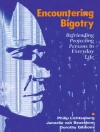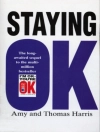This acclaimed work has introduced tens of thousands of clinicians to mindfulness-based cognitive therapy (MBCT) for depression, an 8-week program with proven effectiveness. Step by step, the authors explain the ‘whys’ and ‘how-tos’ of conducting mindfulness practices and cognitive interventions that have been shown to bolster recovery from depression and prevent relapse. Clinicians are also guided to practice mindfulness themselves, an essential prerequisite to teaching others. Forty-five reproducible handouts are included. Purchasers get access to a companion website featuring downloadable audio recordings of the guided mindfulness practices (meditations and mindful movement), plus all of the reproducibles, ready to download and print in a convenient 8 1/2′ x 11′ size. A separate website for use by clients features the audio recordings only.
New to This Edition
- Incorporates a decade’s worth of developments in MBCT clinical practice and training.
- Chapters on additional treatment components: the pre-course interview and optional full-day retreat.
- Chapters on self-compassion, the inquiry process, and the three-minute breathing space.
- Findings from multiple studies of MBCT’s effectiveness and underlying mechanisms. Includes studies of adaptations for treating psychological and physical health problems other than depression.
- Audio files of the guided mindfulness practices, narrated by the authors, on two separate Web pages–one for professionals, together with the reproducibles, and one just for clients.
See also the authors’ related titles for clients: The Mindful Way through Depression, Second Edition demonstrates these proven strategies in a self-help format, with in-depth stories and examples. The Mindful Way Workbook gives clients additional, explicit support for building their mindfulness practice, following the sequence of the MBCT program. Plus, for professionals: Mindfulness-Based Cognitive Therapy with People at Risk of Suicide extends and refines MBCT for clients with suicidal depression.
Inhoudsopgave
Introduction
I. The Challenge of Depression
1. Depression Casts a Long Shadow
2. Why Do People Who Have Recovered from Depression Relapse?
3. Developing Mindfulness-Based Cognitive Therapy
II. Mindfulness-Based Cognitive Therapy
4. Doing and Being
5. The Eight-Session Program: How and Why
6. The Preclass Participant Interview
7. Awareness and Automatic Pilot: Session 1
8. Kindness and Self-Compassion in Mindfulness-Based Cognitive Therapy
9. Living in Our Heads: Session 2
10. Gathering the Scattered Mind: Session 3
11. Recognizing Aversion: Session 4
12. Inquiring into Practice and Practicing Inquiry
13. Allowing/Letting Be: Session 5
14. Thoughts Are Not Facts: Session 6
15. A Day of Mindful Practice
16. ‘How Can I Best Take Care of Myself?’: Session 7
17. Maintaining and Extending New Learning: Session 8
18. Reprise: The 3-Minute Breathing Space as the Spine of the Program
III. Evaluation and Dissemination
19. Does Mindfulness-Based Cognitive Therapy Work?
20. How Does Mindfulness-Based Cognitive Therapy Achieve Its Effects?
21. Moving the Program Off the Page and into the Clinic: Supports for Mindfulness-Based Cognitive Therapy Instructors and Their Patients
Epilogue
Audio Downloads
1. Welcome and Introduction (0:30)
2. Raisin Exercise (9:13)
3. Body Scan (37:47)
4. 10-Minute Sitting Meditation–Mindfulness of the Breath (11:20)
5. Mindful Movement–Formal Practice (38:25)
6. Stretch and Breath Meditation (40:41)
7. Mindful Walking (32:24)
8. 3-Minute Breathing Space–Regular Version (4:08)
9. 3-Minute Breathing Space–Responsive Version (4:58)
10. 20-Minute Sitting Meditation (20:32)
11. Sitting Meditation (36:46)
12. Working with Difficulty Meditation (24:08)
13. Bells at 5 Minutes, 10 Minutes, 15 Minutes, and 30 Minutes (30:32)
Over de auteur
Zindel Segal, Ph D, is Distinguished Professor of Psychology in Mood Disorders at the University of Toronto–Scarborough. He is Director of Clinical Training in the Clinical Psychological Science Program and is also Professor in the Department of Psychiatry. Dr. Segal has conducted influential research into the psychological processes that make certain people more vulnerable than others to developing depression and experiencing recurrent episodes. He actively advocates for the relevance of mindfulness-based clinical care in psychiatry and mental health. He collaborated with John Teasdale and Mark Williams in developing mindfulness-based cognitive therapy (MBCT) to prevent relapse and recurrence in major depression; together, they coauthored Mindfulness-Based Cognitive Therapy for Depression, Second Edition (for mental health professionals), as well as the self-help guides The Mindful Way Workbook and (with Jon Kabat-Zinn) The Mindful Way through Depression.
Mark Williams, DPhil, is Professor of Clinical Psychology Emeritus at the University of Oxford Department of Psychiatry, where he was Founding Director of the Oxford Mindfulness Centre. He collaborated with John Teasdale and Zindel Segal in developing mindfulness-based cognitive therapy (MBCT) to prevent relapse and recurrence in major depression; together, they coauthored Mindfulness-Based Cognitive Therapy for Depression, Second Edition (for mental health professionals), as well as the self-help guides The Mindful Way Workbook and (with Jon Kabat-Zinn) The Mindful Way through Depression, Second Edition. Dr. Williams continues to train mindfulness teachers internationally.
John Teasdale, Ph D, held a Special Scientific Appointment with the United Kingdom Medical Research Council’s Cognition and Brain Sciences Unit in Cambridge. He is a Fellow of the British Academy and the Academy of Medical Sciences. He collaborated with Mark Williams and Zindel Segal in developing mindfulness-based cognitive therapy (MBCT) to prevent relapse and recurrence in major depression; together, they coauthored Mindfulness-Based Cognitive Therapy for Depression, Second Edition (for mental health professionals), as well as the self-help guides The Mindful Way Workbook and (with Jon Kabat-Zinn) The Mindful Way through Depression. Since retiring, Dr. Teasdale has taught mindfulness and insight meditation internationally. He continues to explore and seek to understand the wider implications of mindfulness and meditation for enhancing our way of being.












